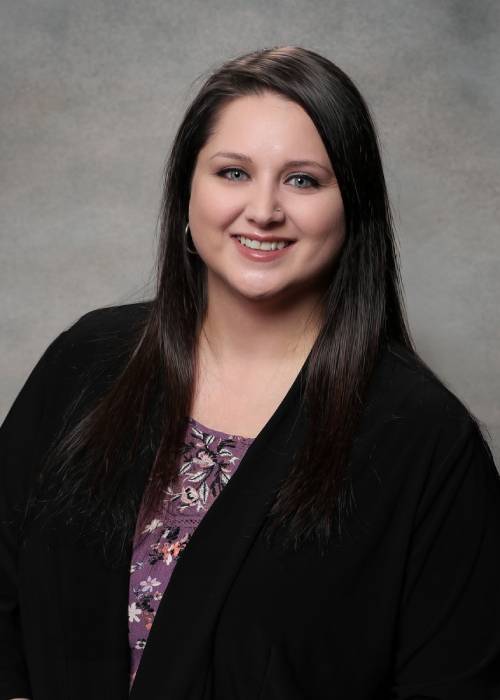May 13, 2025
Chapman ‘comes home’ to Medical Laboratory Sciences

When Rhonda Chapman, M.S., MLS (ASCP), walked back into Medical Laboratory Sciences last December – not as a student this time, but as the department’s clinical coordinator – she felt like she was coming home.
She graduated from VCU in 2015 with a bachelor’s and master’s degree, completing the department’s accelerated program. “And I remember even then, I knew I wanted to teach,” she said. “But in the whirlwind of work and promotions, I kind of forgot that.”
Over the last decade, Chapman climbed rapidly through the ranks at HCA Healthcare, starting in a freestanding emergency department and eventually becoming the education manager for all the system’s Richmond-area sites. But the pandemic upended her role by driving exponential demands on medical labs, and she returned to the bench, running patient tests across seven facilities.
“Testing was all anybody wanted,” she said, “so I went back to the bench.”
After four years as laboratory manager at Johnston-Willis Hospital, Chapman needed to rethink her next move when the position was eliminated. Then the opportunity to return to VCU opened up – with perfect timing. “My daughter’s getting older, turning 14, and wanting to play sports,” she said. “With my old job, I wasn’t always able to be present. Now I can be.”
As clinical coordinator, Chapman oversees a complex network of clinical rotations required for MLS students. It’s a behind-the-scenes puzzle balancing individual student needs with hospital capacities, not to mention transportation considerations.
And she understands how important those assignments are for shaping confident, competent professionals.
“We start by teaching theory, but until students can apply that knowledge, it isn’t real to them,” the Louisiana native said. “Clinical rotations are where the transformation happens. That’s when students go from timid to confident. You can see it in their posture, in their eyes.”
Chapman also teaches the program’s hybrid medical lab management and education course, where students learn to become educators themselves. It’s a critical skill in a field that few outside the profession fully understand.
“I can’t tell you how many times I’ve been asked, ‘Do you need a degree to do this?’ or ‘Don’t you just press a button and it tells you?’” she said. “There’s a huge gap between what the public understands and what we actually do. Part of our professional duty is to close that gap.”
To help students develop their communication and teaching abilities, Chapman revived a hands-on assignment from her own classroom days. Each student must teach a mini-lesson on a topic of their choice. In the spring semester, those included everything from Moroccan architecture to sourdough bread starters. “It doesn’t have to be lab-related. Just something they care about,” she said. “Because if you can explain something you love, you can learn to educate effectively.”
With only a few months under her belt, Chapman is still settling into the role. She’s already planning tweaks to her courses for next semester, looking for more ways to bring real-world lab management into the classroom.
And she’s helping the department grow. VCU recently expanded its clinical placements to include several University of Virginia community hospitals, a move Chapman sees as crucial.
“Clinical placements are our bottleneck,” she said. “If we want to admit more students, we need more sites where they get that supervised training. Developing new partnerships with placement partners is critical to growing our program, which, in turn, will help address industry demands.”